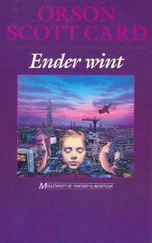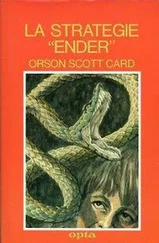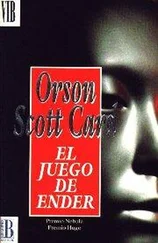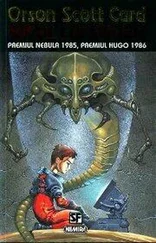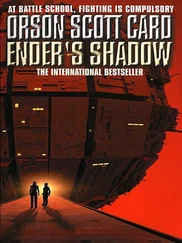Valentine knew why they had moved here. It was for Peter, so that living among trees and small animals, so that nature in as raw a form as Mother and Father could conceive of it, might have a softening influence on their strange and frightening son. And, in a way, it had. Peter took to it right away. Long walks out in the open, cutting through woods and out into the open country—going sometimes for a whole day, with only a sandwich or two sharing space with his desk in the pack on his back, with only a small pocket knife in his pocket.
But Valentine knew. She had seen a squirrel half-skinned, spiked by its little hands and feet with twigs pushed into the dirt. She pictured Peter trapping it, staking it, then carefully parting and peeling back the skin without breaking into the abdomen, watching the muscles twist and ripple. How long had it taken the squirrel to die? And all the while Peter had sat nearby, leaning against the tree where perhaps the squirrel had nested, playing with his desk while the squirrel's life seeped away.
At first she was horrified, and nearly threw up at dinner, watching how Peter ate so vigorously, talked so cheerfully. But later she thought about it and realized that perhaps, for Peter, it was a kind of magic, like her little fires; a sacrifice that somehow stilled the dark gods that hunted for his soul. Better to torture squirrels than other children. Peter has always been a husbandman of pain, planting it, nurturing it, devouring it greedily when it was ripe; better he should take it in these small, sharp doses than with dull cruelty to children in the school.
"A model student," said his teachers. "I wish we had a hundred others in the school just like him. Studies all the time, turns in all his work on time. He loves to learn."
But Valentine knew it was a fraud. Peter loved to learn, all right, but the teachers hadn't taught him anything, ever. He did his learning through his desk at home, tapping into libraries and databases, studying and thinking and, above all, talking to Valentine. Yet at school he acted as though he were excited about the puerile lesson of the day. Oh, wow, I never knew that frogs looked like this inside, he'd say, and then at home he studied the binding of cells into organisms through the philotic collation of DNA. Peter was a master of flattery, and all his teachers bought it.
Still, it was good. Peter never fought anymore. Never bullied. Got along well with everybody. It was a new Peter.
Everyone believed it. Father and Mother said it so often it made Valentine want to scream at them. It isn't the new Peter! It's the old Peter, only smarter!
How smart? Smarter than you , Father. Smarter than you , Mother. Smarter than anybody you have ever met.
But not smarter than me.
"I've been deciding," said Peter, "whether to kill you or what."
Valentine leaned against the trunk of the pine tree, her little fire a few smoldering ashes. "I love you, too, Peter."
"It would be so easy. You always make these stupid little fires. It's just a matter of knocking you out and burning you up. You're such a firebug."
"I've been thinking of castrating you in your sleep."
"No you haven't. You only think of things like that when I'm with you. I bring out the best in you. No, Valentine, I've decided not to kill you. I've decided that you're going to help me."
"I am?" A few years ago, Valentine would have been terrified at Peter's threats. Now, though, she was not so afraid. Not that she doubted that he was capable of killing her. She couldn't think of anything so terrible that she didn't believe Peter might do it. She also knew, though, that Peter was not insane, not in the sense that he wasn't in control of himself. He was in better control of himself than anyone she knew. Except perhaps herself. Peter could delay any desire as long as be needed to; he could conceal any emotion. And so Valentine knew that he would never hurt her in a fit of rage. He would only do it if the advantages outweighed the risks. And they did not. In a way, she actually preferred Peter to other people because of this. He always, always acted out of intelligent self-interest. And so, to keep herself safe, all she had to do was make sure it was more in Peter's interest to keep her alive than to have her dead.
"Valentine, things are coming to a head. I've been tracking troop movements in Russia."
"What are we talking about?"
"The world, Val. You know Russia? Big empire? Warsaw Pact? Rulers of Eurasia from the Netherlands to Pakistan?"
"They don't publish their troop movements, Peter."
"Of course not. But they do publish their passenger and freight train schedules. I've had my desk analyzing those schedules and figuring out when the secret troop trains are moving over the same tracks. Done it backward over the past three years. In the last six months, they've stepped up, they're getting ready for war. Land war."
"But what about the League? What about the buggers?" Valentine didn't know what Peter was getting at, but he often launched discussions like this, practical discussions of world events. He used her to test his ideas, to refine them. In the process, she also refined her own thinking. She found that while she rarely agreed with Peter about what the world ought to be, they rarely disagreed about what the world actually was . They had become quite deft at sifting accurate information out of the stories of the hopelessly ignorant, gullible news writers. The news herd, as Peter called them.
"The Polemarch is Russian, isn't he? And he knows what's happening with the fleet. Either they've found out the buggers aren't a threat after all, or we're about to have a big battle. One way or another, the bugger war is about to be over. They're getting ready for after the war."
"If they're moving troops, it must be under the direction of the Strategos."
"It's all internal, within the Warsaw Pact."
This was disturbing. The facade of peace and cooperation had been undisturbed almost since the bugger wars began. What Peter had detected was a fundamental disturbance in the world order. She had a mental picture, as clear as memory, of the way the world had been before the buggers forced peace upon them. "So it's back to the way it was before."
"A few changes. The shields make it so nobody bothers with nuclear weapons anymore. We have to kill each other thousands at a time instead of millions." Peter grinned. "Val, it was bound to happen. Right now there's a vast international fleet and army in existence, with American hegemony. When the bugger wars are over, all that power will vanish, because it's all built on fear of the buggers. And suddenly we'll look around and discover that all the old alliances are gone, dead and gone, except one, the Warsaw Pact. And it'll be the dollar against five million lasers. We'll have the asteroid belt, but they'll have Earth, and you run out of raisins and celery kind of fast out there, without Earth."
What disturbed Valentine most of all was that Peter did not seem at all worried. "Peter, why do I get the idea that you are thinking of this as a golden opportunity for Peter Wiggin?"
"For both of us, Val."
"Peter, you're twelve years old. I'm ten. They have a word for people our age. They call us children and they treat us like mice."
"But we don't think like other children, do we, Val? We don't talk like other children. And above all, we don't write like other children."
"For a discussion that began with death threats, Peter, we've strayed from the topic, I think." Still, Valentine found herself getting excited. Writing was something Val did better than Peter. They both knew it. Peter had even named it once, when he said that he could always see what other people hated most about themselves, and bully them, while Val could always see what other people liked best about themselves, and flatter them. It was a cynical way of putting it, but it was true. Valentine could persuade other people to her point of view—she could convince them that they wanted what she wanted them to want. Peter, on the other hand, could only make them fear what he wanted them to fear. When he first pointed this out to Val, she resented it. She had wanted to believe she was good at persuading people because she was right, not because she was clever. But no matter how much she told herself that she didn't ever want to exploit people the way Peter did, she enjoyed knowing that she could, in her way, control other people. And not just control what they did. She could control, in a way, what they wanted to do. She was ashamed that she took pleasure in this power, and yet she found herself using it sometimes. To get teachers to do what she wanted, and other students. To get Mother and Father to see things her way. Sometimes, she was able to persuade even Peter. That was the most frightening thing of all—that she could understand Peter well enough, could empathize with him enough to get inside him that way. There was more Peter in her than she could bear to admit, though sometimes she dared to think about it anyway. This is what she thought as Peter spoke: You dream of power, Peter, but in my own way I am more powerful than you.
Читать дальше


